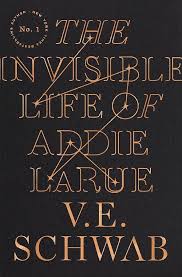Chapter V
byChapter V begins on a brisk morning in March 2014, where Henry Strauss finds himself wrestling with time as he faces the start of a busy day in New York City. Though he envisions greeting each day with peace and a calm morning coffee, Henry often finds himself struggling to match the pace of the world around him. Today is no different as he rushes to meet his younger sister, Muriel, for breakfast—a meeting that has been delayed once again due to Henry’s habit of procrastination. His sense of time slipping away adds to the tension of the morning, as he feels constantly behind in a world that demands more than he can keep up with.
Navigating the city streets, Henry is enveloped by the hustle of New York, with people moving swiftly around him as he heads toward a hidden café known as Sunflower. Situated in a quiet corner of the city, Sunflower is a peaceful retreat away from the usual chaos, a space where Henry can catch his breath. The café’s charm lies in its simplicity, offering Henry a brief escape from the frenzy outside, but he cannot shake the feeling that, despite the calm, his life is always teetering between rare moments of peace and a constant reminder of his disconnection from those around him. Sunflower is not just a café but a symbol of the space Henry needs in a world that keeps moving forward while he stays behind, caught between his own desire for peace and the demands of the people in his life.
Once inside the café, Henry steels himself for his meeting with Muriel, who, at just twenty-four years old, has already carved out a name for herself in New York’s art world. Muriel’s vibrancy and passion for art stand in stark contrast to Henry’s quiet introspection, making it challenging for him to truly connect with her world. As she speaks animatedly about her latest critiques of contemporary art and her favorite exhibits, Henry listens with a sense of admiration, but also distance. Their conversation flows easily, but Henry cannot help but feel that they are worlds apart, with Muriel’s life filled with passion and creativity, while his own remains more grounded, focused on stability rather than artistic expression. Despite their differences, there is an underlying affection between them, as they share this rare moment of connection, a reminder that family ties run deeper than their contrasting worlds.
Their conversation takes an unexpected turn when Muriel brings up their older brother, David—a topic that Henry hasn’t thought about in some time. Henry is taken aback by Muriel’s mention of David’s sudden interest in his life, as it is something he had not anticipated. The revelation stirs up a mix of curiosity and hesitation in Henry, forcing him to confront the complexities of his relationship with David. As the conversation unfolds, Henry is left with lingering questions about his family, the roles they expect him to play, and the unspoken emotions that shape their dynamics. Despite the seemingly casual nature of their breakfast, it becomes a space for reflection on the complexities of family ties, individual identity, and the difficulty of truly understanding one another.
The chapter highlights the growing tension between Henry’s need for independence and his familial obligations. Muriel’s life as an art critic and her focus on the broader world of creativity is at odds with Henry’s more grounded perspective, causing him to feel isolated in their interactions. As they continue their breakfast, the divide between their lives becomes more apparent, leaving Henry questioning the nature of their connection and his place within both his family and the city around him. The conversation, while seemingly ordinary, is filled with unresolved emotions and the quiet realization that Henry’s journey is one of self-discovery and the search for meaning within his relationships and the world that continues to move forward without him.


